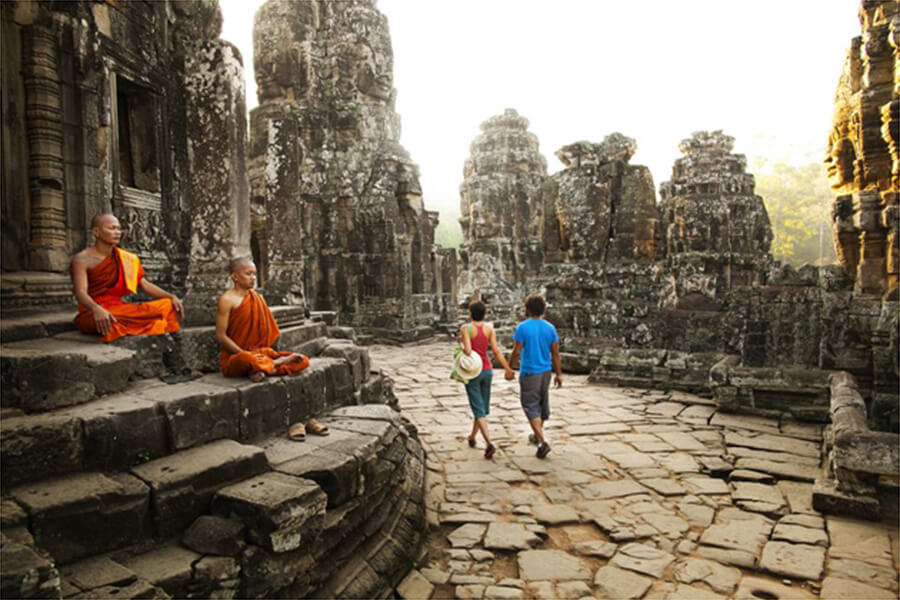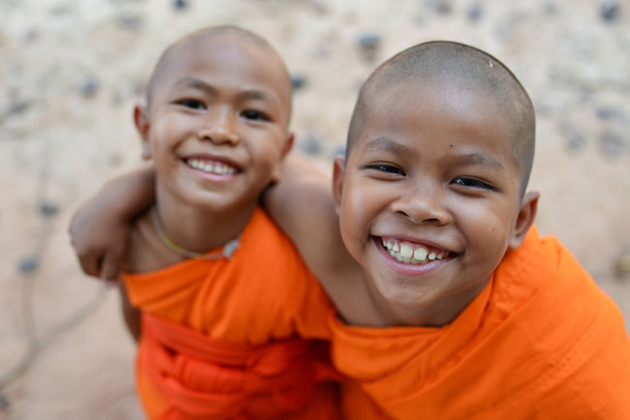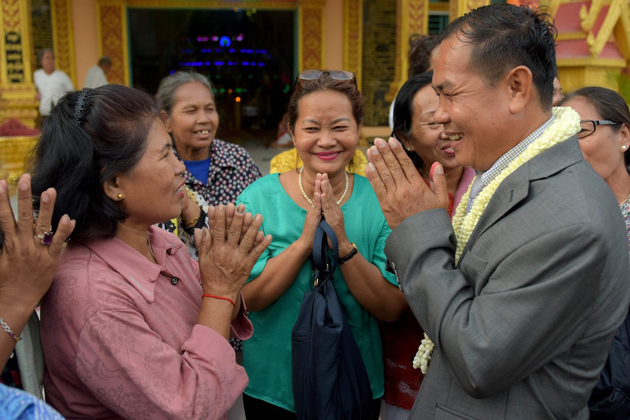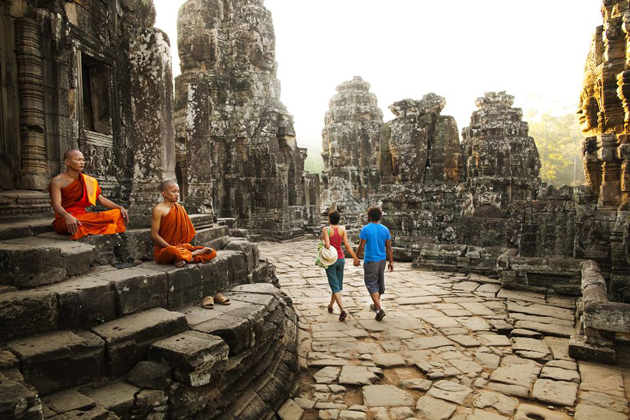Cambodian people are exceptionally kind and open to visitors given the horrors they had to endure in the past. Similar to people from other Southeast Asian countries, the mellowness of Cambodians are forged by a strong belief in Buddhism teachings. The Cambodian people's characteristics and behaviors are also under the influence of Confucianism, which focuses on love and respect for the family, commitment to education, hard work, loyalty, and obligations to the communities, etc. If you have the chance to embark on an Indochina tour, you will notice that Cambodian people are very sophisticated and they hide so much more under their warming smiles.
Gentle & Warm
If you know about the tragic past of Cambodia, you will come to admire the smiles on people’s faces. During the Khmer Rouge years, Cambodian gentleness and warmth were undermined to some degree, but it’s still very much alive because compared to the Vietnamese, who are known to be fighters, Cambodian norms discourage aggressiveness, anger, and conflict. You can hardly find alcoholism, crime, open confrontation, and conflict within communities because the Cambodian sense of commitment to a common good for their society is very strong.
Cambodians used to have a “live for today” attitude that is somewhat similar to Laotian people and people from Southern Vietnam. One of the most-used expressions is “it doesn’t matter” because Cambodians have a sense of acceptance, same with people from countries that are under the influence of Theravada Buddhism. People tend to be more accepting of what they have, and care more about karma than determination. This can reduce the amount of stress that people have, but as a result, the sense of competition in people is also lowered.
Courteous & Respectful
Cambodians generally avoid confrontation and they don’t want to show that they are angry in public. Aggressive people are considered boorish and crude and outward expression of anger can damage one’s name. They will express their attitude through a third person and try their best to avoid face to face confrontation. The fact that people are taught to keep their extreme emotions like anger and passion in check can sometimes be good and sometimes harm them.
In Cambodia, people place a high value on education and they show the utmost respect towards elders and people with high academic achievements. In addition, people also think very highly of Buddhist beliefs, maintain a deep reverence of the royal family, and stay loyal to their friends and family.
Beating about the Bush
Cambodians are not the most straightforward people in the world. Even in daily conversations, the use of circumlocution is considered a norm and people usually express what they mean by using innuendos and lots of metaphors. Sometimes, it can be hard for the uninitiated to pick up on what the locals really mean. “In Cambodia, there are always levels and levels—and then more levels—of intrigues and shadows,” an aid worker told Vanity Fair. The indirectness of Cambodians has been a custom for a long time ago. A 19th-century French writer even wrote that Cambodians had a tendency to “submerge deep differences inside surface similarities”.
For Cambodians, saying “no” directly to someone is impolite. It can harm their mutual relationship and displease the other person. As a result, when they want to turn you down, Cambodians will say something like “I’m busy,” “maybe” or even “yes” when in fact, they don’t plan to do it. This behavior might seem strange to Westerners who prefer a direct “yes” or “no” answer and expect that there is a possibility of a “yes” if people don’t decline directly.





